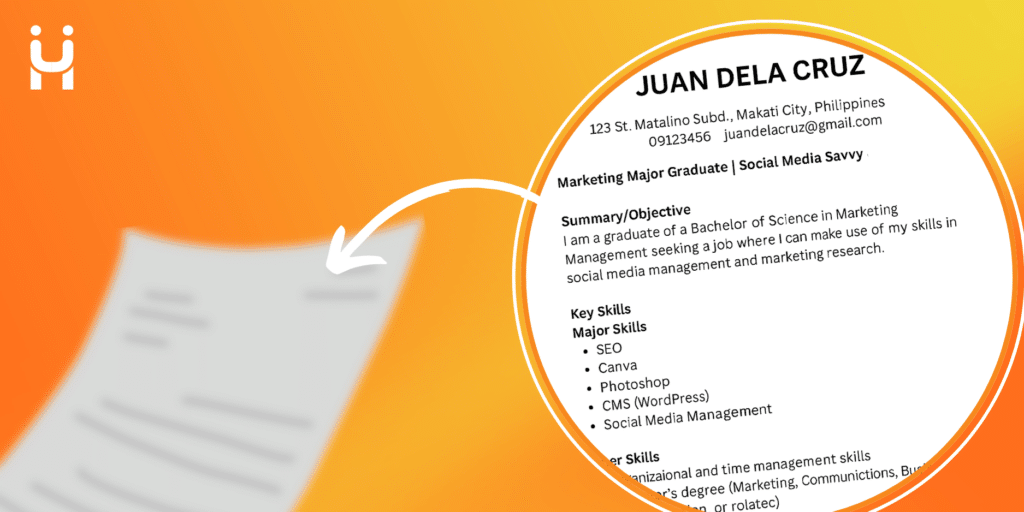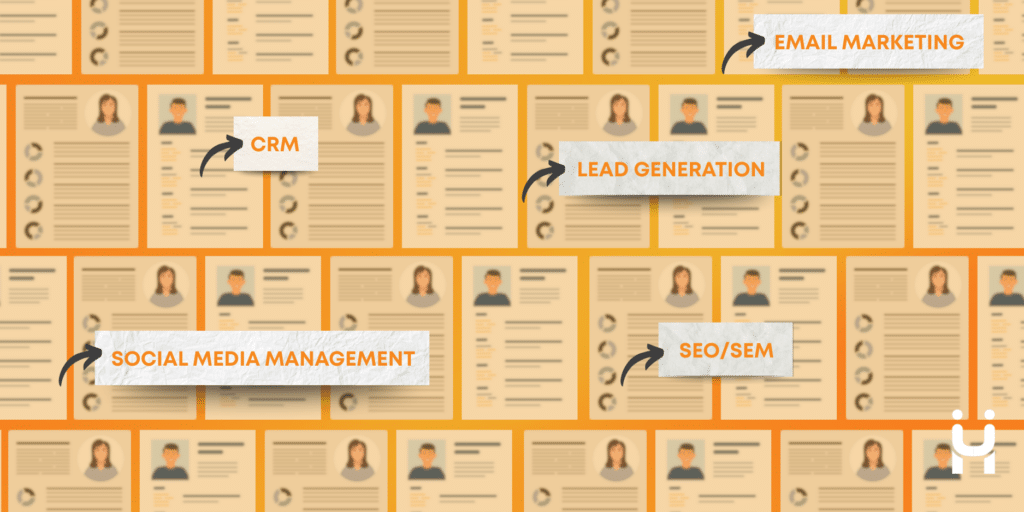Creating your resume is like a masterpiece that you elaborately design reflecting your experiences and inspirations you gained from your career journey.
According to Investopedia, a resume is a formal document a job applicant creates to itemize their qualifications for a position. The applicant constructs the resume based on the job description of a company. Hence, it is not merely about putting all your experiences on a blank sheet of paper altogether, but choosing the best employment record you have to support the most important question in the history of job interviews: “Why do we need to hire you?”
Australian mentor and resume expert Vicki Clothier describes resume writing as both an art and a science. In a LinkedIn article, she explained that the “art” lies in how you craft and present your resume. It is a form of self-expression. Much like art, a resume should not only appeal to the recruiter but also reflect your unique personality, achievements, and values. In essence, a resume is the art of presenting who you are in a way that resonates with your value.

Moreover, Clothier underscored the importance of complementing the creative elements of a resume with quantifiable data to substantiate the information presented. For example, instead of just writing that you managed a social media account, specify that the followers increased by 30 percent over three months. By including data, you increase your chances of becoming an ideal candidate. This is precisely why Clothier refers to the integration and engaging interpretation of data in a resume as a “dance with information.” By crafting a compelling narrative that captures an employer’s interest, she now reinforces her view that a resume represents a “beautiful combination of both art and science.”
Tips and Tricks on Aligning Your Resume with Role-Specific Qualifications
Let’s say this is the job description:
Job Summary:
Tech Solutions Inc. is a dynamic and rapidly growing technology company seeking a motivated and enthusiastic Marketing Associate to join its expanding marketing team.
Responsibilities:
- Assist in implementing marketing campaigns across various channels, including digital marketing, social media, email marketing, and content marketing.
- Conduct market research and analyze industry trends to identify opportunities and insights.
- Create engaging and informative content for social media platforms, websites, and marketing materials.
- Support the coordination of marketing events, webinars, and trade shows.
- Track and analyze marketing campaign performance, providing regular reports and recommendations for optimization.
- Collaborate with cross-functional teams, including sales, product development, and customer support.
- Maintain and update marketing databases and CRM systems.
- Perform administrative tasks to support the marketing department’s daily operations.
Qualifications:
- Bachelor’s degree in Marketing, Communications, Business Administration, or a related field.
- Fresh graduates are welcome to apply.
- Strong written and verbal communication skills.
- Excellent organizational and time management skills.
- Proficiency in Microsoft Office Suite (Word, Excel, PowerPoint).
- Familiarity with social media platforms and digital marketing concepts.
- A proactive attitude and a willingness to learn.
- Ability to work independently and as part of a team.
- Passion for technology and marketing.
Identify the keywords and add them naturally

Every job listing—whether featured on a recruitment platform or in an advertisement, outlines specific qualifications and responsibilities associated with the role. In other words, they are different from one another. So, carefully read the job descriptions, highlight the key skills, qualifications, and industry terms that repeatedly appear.
Going by what the job description says, take note of the keywords such as marketing campaigns, digital marketing, social media, email marketing, content marketing, market research, brand awareness, lead generation, customer engagement, SEO/SEM, and CRM. Make sure that those keywords are in there when you are typing up your resume. They should be emphasized clearly when you describe your past or current work experiences. If you don’t have much experience, you can relate them to what you learned in college, an internship, or a part-time job.
Incorporating relevant keywords into your resume is essential, particularly for companies utilizing Applicant Tracking Systems (ATS). It is a software designed to efficiently manage and filter thousands of resumes by scanning for specific terms related to skills, qualifications, experience, and other pertinent criteria. This insight is supported by a 2024 LinkedIn article titled “How to Use Keywords to Pass Through Applicant Tracking Systems (ATS)”.
Include the specific must-haves and nice-haves in the qualifications
Writing a resume is not just putting all your work experiences in order. It should be personalized, authentic, and designed specifically for the position you are applying for. So, how do you do it? According to the website “Top Resume”, the proper arrangement of sections in a resume follows:
- contact information;
- resume headline;
- resume summary (including career objective),
- key skills;
- work experience (focusing on related experience and emphasizing achievements);
- education; and
- optional sections.
So, here’s how to do it.
First of all, write your full name above in bold letters, then below are your complete contact details. For example:
Juan dela Cruz
123 St. Matalino Subd. Makati City, Philippines
0912345678
juandelacruz@gmail.com
Below your contact details is your resume headline, a “catchy one-liner that highlights your experience and skills.” Example:
Marketing Major Graduate | Social Media Savvy & Data-Informed
Next, tailor your objectives based on the keywords you get from the job summary. Example:
I am a graduate of a Bachelor of Science in Marketing Management seeking a job where I can make use of my skills in social media management and marketing research.
After your objectives, add your effective and unique skills that match the job description. You may also include your other supplementary skills that could further enhance your qualifications. For example:
Major Skills
- SEO
- Canva
- Photohop
- CMS (WordPress)
- Social Media Management
Other Skils
- Organizational and time management skills
- Bachelor’s degree (Marketing, Communications, Business Administration, or related)
- Teamwork and collaboration
- Proactive attitude/Willingness to learn
- Familiarity with digital marketing/social media
Your work history should be next. These are the experiences you have gained in your college or vocational course. For the summary of your work experience, list all your previous works in chronological order, starting with the most recent. Under each work experience, include bullet points that outline the tasks or job roles related to the job descriptions.
Here’s a quick tip: When you are describing your previous job responsibilities, use strong action verbs (e.g., “developed,” “managed,” “implemented,” “analyzed”). This makes your experiences sound more confident and shows a solid impression of what you can bring to the table. It signals the recruiter that you are not merely an observer, but someone who takes initiative and drives results.
Also, if the job description uses specific industry terms or acronyms, incorporate them into your resume. This shows you understand your field of work and what the employer specifically needs.
Example: Marketing Assistant- ABC Company- Internship
Applied SEO/SEM principles for our marketing campaigns.
Developed marketing materials by drafting copies for brochures and website updates.
Lastly, adding other sections, such as certificates, awards, and organizations you are a member of that are relevant to the job, could level up your resume.
Remember to approach your resume not merely as a record, but as a persuasive argument answering the question “Why you?” by strategically showcasing skills and experiences that are directly aligned with the employer’s needs.

